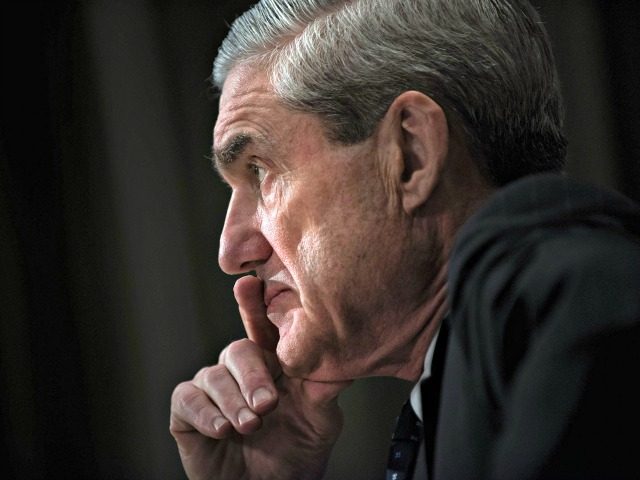The New York Times published a list of questions Monday that, it said, were prepared by Special Counsel Robert Mueller to ask President Donald Trump. One of them, oddly, referred to a long-debunked conspiracy theory about the 2016 Republican Party platform.
Most of the questions had nothing to do with allegations that the Trump campaign colluded with Russia. Instead, they focused on the possibility that President Trump obstructed justice when he fired former FBI director James Comey last May.
In that regard, the questions seem to ignore arguments that the president cannot obstruct justice when he acts in furtherance of his constitutional duties, or indeed that there is no underlying crime to conceal.
But there are some questions on Russia — and few of them go beyond theories that have appeared in the mainstream media.
If these are indeed the questions Mueller wishes Trump to answer, it would seem his inquiry has uncovered almost nothing in a year of work that would suggest any substantive connection to, let alone collusion with, Russia.
One of the question in particular seems based on a faulty premise — a conspiracy theory that Trump intervened in the process of drafting the Republican Party’s 2016 platform to weaken its stance on Russia’s invasion of Ukraine.
The Times presents the question, followed by its own explanation as to why it is relevant (original emphasis):
- What involvement did you have concerning platform changes regarding arming Ukraine?
A portion of the Republican platform was changed in a way more favorable to Russia.
The Times‘s explanation is false, as is the assumption upon which Mueller’s question appears to have been based.
The conspiracy theory was debunked by Washington Examiner columnist Byron York in an extensive investigative article in March 2017 titled, “How pundits got key part of Trump-Russia story all wrong.”
York explained that the Republican platform not only retained its criticisms of Russian policy in the Ukraine, but that these were made even stronger during the process of drafting, including after instructions were allegedly received from “New York.”
As it turns out, a look at the original draft of the platform — which has never been released publicly — shows that it always had tough language on Russian aggression in Ukraine. And not only did that language stay in the final platform — nothing was taken out — it was actually strengthened, not weakened, as a result of events at the convention.
…
Not long after the platform subcommittee meeting, the [Washington] Post’s “Trump campaign guts GOP’s anti-Russia stance on Ukraine” story was published [here, in the opinion section], and a new conventional wisdom began to form: The Trump team, doing the bidding of Vladimir Putin, gutted the GOP platform’s position on behalf of Russia.
That is precisely the opposite of what happened. In the end, the platform, already fairly strong on the Russia-Ukraine issue, was strengthened, not weakened, as a result of the subcommittee meeting. The Trump campaign agreed to a platform condemning Kremlin belligerence, calling for continued, and perhaps increased, sanctions against Russia, for the full restoration of Ukrainian territory, for refusing to accept “any territorial change in Eastern Europe imposed by force, in Ukraine or elsewhere,” and pledging to aid Ukraine’s armed forces.
The fact that the conspiracy theory has been debunked has not stopped Trump’s opponents — including some Republicans — from repeating the false charge that he intervened to water down the position on Russia and Ukraine.
It is odd that the Special Counsel, who presumably has access to the Washington Examiner and the underlying facts and witnesses, would taint his inquiry by including a debunked conspiracy theory among the questions to be put to the president.
The fact that Mueller did so — assuming the Times report is accurate — lends weight to claim that the investigation has become so partisan as to call its credibility into question.
Joel B. Pollak is Senior Editor-at-Large at Breitbart News. He was named to Forward’s 50 “most influential” Jews in 2017. He is the co-author of How Trump Won: The Inside Story of a Revolution, which is available from Regnery. Follow him on Twitter at @joelpollak.

COMMENTS
Please let us know if you're having issues with commenting.